Ecumenism: October 2009 Archives
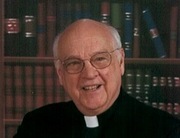
Zenit ran an interview the other about the recent development of possibilities of full communion of the Anglicans with Rome. The details of how this gesture of the Church has yet to be revealed by the Magisterium. Here is part of Karna Sawanson's interview with Monsignor William Stetson, secretary to the Ecclesiastical Delegate of the Congregation for the Doctrine of the Faith for the Pastoral Provision for former Episcopal priests. This part of the interview has to do with "personal ordinariates," the ecclesial structure proposed for living in the context of Anglican ways.
ZENIT: What is the aim of establishing the personal ordinariates? Why was the pastoral provision not sufficient?
Msgr. Stetson: The pastoral provision is merely an administrative process for preparing married, former Episcopal priests to be ordained as Catholic priests at the request of diocesan bishops. The new ordinariate will provide a canonical structure similar to a diocese for the pastoral care of lay faithful who convert from the Episcopal church.
ZENIT: This canonical structure seems to respond directly to a petition made two years ago by the Traditional Anglican Communion, which has about 400,000 members worldwide. Do you see many or most of these members entering into communion with the Catholic Church through the personal ordinariate?
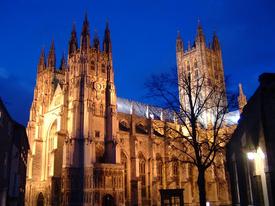
Msgr. Stetson: The Traditional Anglican Communion is in reality a confederation of so-called dioceses located in many different countries; it is made up of priests and lay people and bishops. The Traditional Anglican Communion as such has never been part of the Anglican Communion under the Archbishop of Canterbury. What will happen to the dioceses in particular countries will depend on the decisions reached by the Catholic hierarchy in the respective countries together with the Congregation for the Doctrine of the Faith. Their numbers are greater in Africa and Asia.
ZENIT: What will the process look like for Anglicans, especially priests and bishops, entering the Church through the ordinariate?
Msgr. Stetson: The Apostolic Constitution allowing for the creation of ordinariates in each country has not yet been issued. For this reason we do not know the nature of the process. I would anticipate that it will be similar to that used for the last 27 years by the Pastoral Provision here in the United States, and its counterpart in England (that did not, however, provide for parishes and liturgy, as in the United States.)
ZENIT: The Vatican announcement provided for the possibility of an Anglican ordinariate having seminarians, who are to be prepared alongside Catholic seminarians, "though the ordinariate may establish a house of formation to address the particular needs of formation in the Anglican patrimony." Would this include the possibility of marriage for these Anglican seminarians?
Msgr. Stetson: The specifics have not yet been made known on this question. At the very least I would assume that the seminarians would have to be both married and studying in an Anglican seminary at the time they sought to enter into full communion, and then continue studying for the priesthood in a Catholic seminary. They would have to be dispensed from the norm of celibacy on a case-by-case basis by the Holy See. Future seminarians would have to be celibate.
ZENIT: What other traditions will the Anglicans retain when they enter the Catholic Church by way of the personal ordinariate?
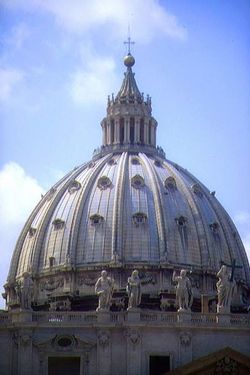
Msgr. Stetson: Small parishes that allow for greater cohesion together. A rich tradition of liturgical expression (language, music, vestments, space, etc.) in English, dating back to the 16th century. This would also include a great tradition of the use of sacred Scripture in preaching, love for the Fathers of the Church and theological expression beyond that of Roman Catholic scholasticism.
ZENIT: Why is the Vatican able to offer this concession only to Anglicans, and not Lutherans, Presbyterians, etc., who would like to enter the Church?
Msgr. Stetson: Anglicans have always enjoyed a
special place in Roman Catholic attitudes toward the rupture of Christian unity
in the West after the 16th century. The Church of England sought to retain many
elements of the Catholic Church while at the same time being Protestant. The
Church of England maintained a greater unity within itself and thus could be
dealt with as a single entity in conversations with Rome.
It is a dramatic slap-down of liberal Anglicanism and a total repudiation of the ordination of women, homosexual marriage and the general neglect of doctrine in Anglicanism. Indeed, it is a final rejection of Anglicanism. It basically interprets Anglicanism as a spiritual patrimony based on ethnic tradition rather than substantial doctrine and makes clear that it is not a historic "church" but rather an "ecclesial community" that strayed and now is invited to return to communion with the Pope as Successor of Peter.
The Vatican was careful to schedule simultaneously with the Vatican announcement, a press conference of the Catholic Archbishop of Westminster and the deeply humiliated Anglican Archbishop of Canterbury to enable the Anglicans to save some face by saying that this recognizes the spiritual patrimony of Anglicanism and that ecumenical dialogue goes ahead. That is like George Washington at Yorktown saying that he recognizes the cultural contributions of Britain and hopes diplomatic relations flourish. The Apostolic Constitution is not a retraction of ecumenical desires, but rather is the fulfillment of ecumenical aspirations, albeit not the way most Anglican leaders had envisioned it.
The press, uninformed and always tabloid in matters of religion, will zoom in on the permission for married priests. They will miss the most important point: that this reiterates the Catholic Church's insistence that Anglican Holy Orders are invalid, and perforce so is their Eucharist. These married Anglican priests have to be fully and validly ordained by a Catholic bishop. Following Orthodox custom, they are allowed to marry only before ordination and not after. And no married man may become a bishop. (Thus, any Anglican bishop joining one of these "ordinariates" would no longer be recognized as a bishop. Under special provision, Anglican bishops would have some right to pastoral authority, but would not be bishops.)
It remains to be seen how many Anglicans (Episcopalians in the USA) will be received into the Catholic Church under these provisions, but it is a final nail in the coffin of the rapidly disintegrating Anglicanism at least in the West and will radically challenge Anglicans in other parts of the world. Perhaps most importantly, it sets a precedent for reunion with Orthodox churches whose Holy Orders the Catholic Church already recognizes as valid. I should not be surprised if the Anglican Archbishop of Canterbury eventually is received into the Catholic Church, at least when he retires and gets a patent of nobility and a pension.
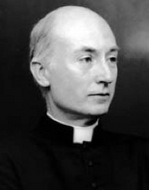
Fr. George
Rutler is pastor of The Church of Our Saviour in New York City and is a convert
to Catholicism from the Anglican Communion.
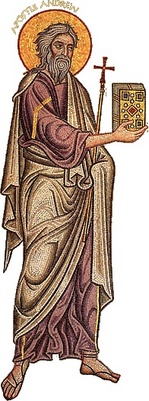
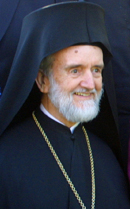
Metropolitan John Zizioulas of Pergamon sent a letter to the Archbishop of Greece and to all Metropolitans of the Church of Greece reflecting on their acerbic and uninformed opinion regarding theological dialogue with the See of Rome. Rigid adherence to one's opinion is sinful. Metropolitan John is a consequential theologian and therefore I think his insight matters. Clearly one gets the impression he distrusts imprudent public speculation as to when and how a "reunion of the Orthodox and Catholic Churches" is to take place. A too hopeful stance is unrealistic and does not account for the continued dogmatic, ecclesiological differences yet to be resolved. One wonders if the Catholic theologians and media people actually do their homework or whether clichés is all they know. There is reason to believe we want to see partial reality.
Your Eminence,
Given that much turmoil has been unduly created by certain circles, on the subject of the official theological Dialogue between Orthodox and Roman Catholics, and that views have also been expressed, which often range between inaccuracy and open falsehood and slander, I am hereby addressing Your affection in order to clarify the following:
1. The aforementioned theological Dialogue does not constitute a concern of the Ecumenical Patriarchate, and much less, that of a specific person, but is something that is taking place upon the decision of all the autocephalous and autonomous Orthodox Churches without exception. Specifically with regard to the present period of the Dialogue, during which the undersigned has the co-chairmanship from the Orthodox side, the agreement of all the Orthodox Churches for the continuation of the Dialogue has been recorded in Memoranda signed by the venerable Primates of the Orthodox Churches, which are hereto attached in photocopy. As Your Eminence will see when reading these Memoranda, even the most holy Church of Greece - and in fact with a Synodical decision - has admitted that "despite the existing difficulties, which spring from the provocative activities of Unia to the detriment of the flock of the Orthodox Church, the said Theological Dialogue must continue." Consequently, those opposed to the said theological Dialogue are doubting and judging pan-Orthodox decisions, which have been reached synodically. By claiming solely as their own the genuine conscience of Orthodoxy, these people are in essence doubting the Orthodoxy not only of certain persons - as they misguidedly insist - but of the very Primates and sacred Synods of all the most holy Orthodox Churches.
2. The same things apply in the case of the said Dialogue. We are informed that a certain professor in his letter to the Reverend Hierarchs is censuring the topic of primacy as a chosen topic for the theological Dialogue, and believes that the Dialogue should be concerning itself with other matters. But the said professor is either ignorant of, or indifferent to, the fact that - again - the topic of the Dialogue was decided on at a pan-orthodox level. The attached Memoranda, signed by all the Primates of the Orthodox Churches, testify to and verify this. The most holy Church of Greece thus accepts that "this discussion (regarding Unia) can, for the sake of facilitating the course of the Dialogue, be conducted within the framework of ecclesiology through the prism of the primacy". This is precisely what we normally intend to do, during the forthcoming discussion of the subject "The Primacy during the 2nd Millennium", which is also when Unia first appeared. The remaining topics that the said professor referred to will by no means be overlooked by the Dialogue. However, during the present phase, as decided at an inter-orthodox level from the beginning of the Dialogue, the focal point of the discussion is Ecclesiology. It is duly respected and legitimate, for the said professor - or anyone else - to have a different point of view, but it is inadmissible to be crying out that Orthodoxy is in danger because the Primates who are shepherding Her do not share his opinion. Where are we heading as a Church, my Reverend holy brother?
3. It is being propagated very falsely and conspiringly that the signing of the union of the Churches is imminent! A professor emeritus of Theology, who is well known for his ill-will towards my person, had visited a Hierarch of the Church of Greece and had told him that he knew with certainty (!) that the union had already been signed (in Ravenna!) and that the relative announcement was a matter of time!!! Clergy and laity have approached me and asked me if it is true that the union is to be signed in Cyprus, in October! Obviously, a feeling of unrest is being attempted among the people of God through this behaviour, with unpredictable consequences for the unity of the Church. However, those who are disseminating these things are fully aware (as long as they have not been blinded by empathy, fanaticism or a mania for self-projection), firstly, that the ongoing theological Dialogue has yet to span an extremely long course, because the theological differences that have accumulated during the one thousand years of division are many; and secondly, that the Committee for the Dialogue is entirely unqualified for the "signing" of a union, given that this right belongs to the Synods of the Churches. Therefore, why all the misinformation? Can't the disseminators of these false "updates" think of what the consequences will be for the unity of the Church? «He who agitates (God's people) shall bear the blame, whoever he may be» (Galatians 5:10).
Your Eminence,
The responsibility of all of us, and mostly of the bishops who have been appointed by God to cater to the safeguarding of the canonical unity of their flock, is an immense one.
What is being jeopardized is ecclesiological: What is the authority and the prestige of Conciliar decisions? Do we conform to the Conciliar decisions as we are already doing - and being attacked for doing so - or do we conform to the "zealots" of Orthodoxy? Can there be an Orthodoxy and Dogmas without any Conciliar rulings?
We ask you to please place yourself on the matter, before we are led to a complete demerit of Conciliar decisions, and before Your flock disintegrates because of negligence on our part.
In humility and in awareness of episcopal responsibility, we submit the above to Your affection and judgment and remain,
in Athens the 26th of September 2009
With Respect, honour and love in the Lord
+ John of Pergamon
Orthodox Co-Chairman of the Committee for the
Theological Dialogue between Orthodox and Roman Catholics

